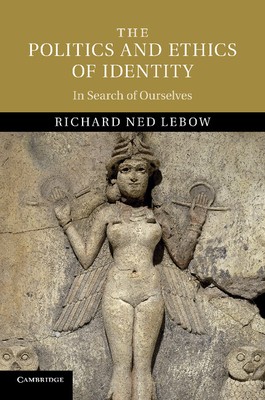
- Išsiųsime per 10–14 d.d.
- Autorius: Richard Ned Lebow
- Leidėjas: Cambridge University Press
- ISBN-10: 110767557X
- ISBN-13: 9781107675575
- Formatas: 15.2 x 22.9 x 2.3 cm, minkšti viršeliai
- Kalba: Anglų
- Extra -15 % nuolaida šiai knygai su kodu: ENG15
Atsiliepimai
Aprašymas
We are multiple, fragmented, and changing selves who, nevertheless, believe we have unique and consistent identities. What accounts for this illusion? Why has the problem of identity become so central in post-war scholarship, fiction, and the media? Following Hegel, Richard Ned Lebow contends that the defining psychological feature of modernity is the tension between our reflexive and social selves. To address this problem Westerners have developed four generic strategies of identity construction that are associated with four distinct political orientations. Lebow develops his arguments through comparative analysis of ancient and modern literary, philosophical, religious, and musical texts. He asks how we might come to terms with the fragmented and illusionary nature of our identities and explores some political and ethical implications of doing so.
EXTRA 15 % nuolaida su kodu: ENG15
Akcija baigiasi už 5d.23:17:37
Nuolaidos kodas galioja perkant nuo 10 €. Nuolaidos nesumuojamos.

- Autorius: Richard Ned Lebow
- Leidėjas: Cambridge University Press
- ISBN-10: 110767557X
- ISBN-13: 9781107675575
- Formatas: 15.2 x 22.9 x 2.3 cm, minkšti viršeliai
- Kalba: Anglų Anglų
We are multiple, fragmented, and changing selves who, nevertheless, believe we have unique and consistent identities. What accounts for this illusion? Why has the problem of identity become so central in post-war scholarship, fiction, and the media? Following Hegel, Richard Ned Lebow contends that the defining psychological feature of modernity is the tension between our reflexive and social selves. To address this problem Westerners have developed four generic strategies of identity construction that are associated with four distinct political orientations. Lebow develops his arguments through comparative analysis of ancient and modern literary, philosophical, religious, and musical texts. He asks how we might come to terms with the fragmented and illusionary nature of our identities and explores some political and ethical implications of doing so.




Atsiliepimai